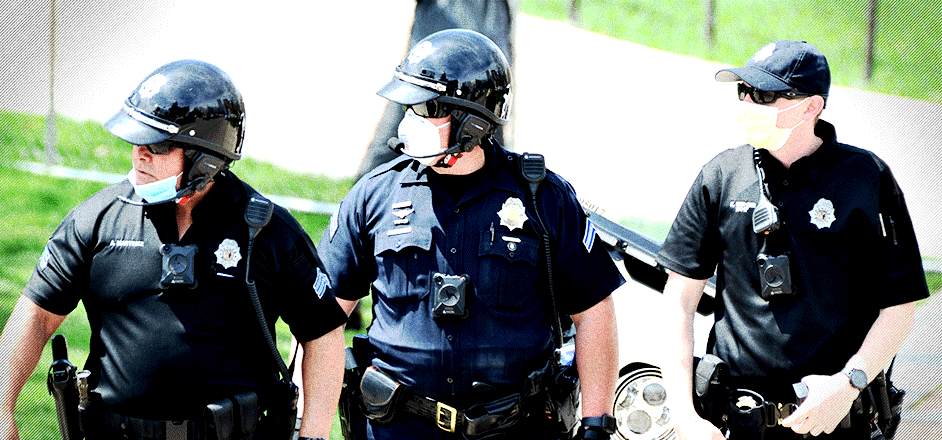The police aren’t particularly popular in America these days. George Floyd’s brutal murder sparked a powder keg in this country that had been building in size and explosive potential for decades. It was the straw that broke the camel’s back and both the nation and the world erupted in protests.
And when police came out to meet them they were wearing riot gear, armed and ready to do battle. Calls to defund the police began to rise up from almost every major city across the US, as video after video of police brutality began circulating the web.
Denver was no different. The Black Lives Matter and Elijah McLain protests swarmed the city’s capitol, choked highway 36 to a standstill, and resulted in the fiery death of at least one Colfax dumpster. “Defund the police” fever was hot and heavy here in Denver.
Which was how a controversial bill to delete the Denver Police Department (DPD) from the city charter made it to the floor of the City Council Monday night. (Though, it didn’t make it any further than that.)
The proposed bill would have done away with DPD as its recognized today — entirely — and replaced it with a “peace force” or a “peacekeeping department.” According to the draft proposal, this would have been a group of city employees, “charged with responsibility to actively implement strategies to prevent conflict, reduce violence, and strengthen security and is to do so prioritizing a holistic, anti-racist, public health-oriented approach.”
It was a bold bill to put forth. Applauded by some, and denounced by many. Denver Mayor Hancock called the idea “reckless and irresponsible.”
Which, was a sentiment that 11/13 city councilmembers seemed to agree with — at least in part. When this proposed bill to kill DPD hit the floor of the City Council Monday night, it was shot down 11 to 1. Meaning it wouldn’t be put to a public vote.
The only vote in favor of this bill came from the councilwoman who was sponsoring it, Candi CdeBaca. Councilwoman CdeBaca said that this “peacekeeping department” was a direct reflection of what an energized public had demanded from their city.
“We’ve worn the (Black Lives Matter) masks. We’ve shared public condolences and moments of silence for lives lost,” CdeBaca said at the meeting. “We’ve told rooms full of hundreds of community members that we hear them. And we want to do something. We’ve told them that they need to participate, not just in the protests, but it changing the policies and laws that are at the root of their strife. And then we told them that we wouldn’t listen to them.”
However, other council members disagreed vehemently, calling CdeBaca’s proposal “half baked.” Councilman Kevin Flynn decried the bill, not because of the ideals behind it, but because it was a poorly drafted piece of legislation. He said that it unfairly pitted voters with the choice of voting for her bill, or voting for racism.
“This proposal disrespects the broader community that has already been organizing on the solution and it lacks any transparency,” Flynn said. “It’s fundamentally flawed … both from a constitutional, legal and practical standpoint.”
Which is at least a hopeful sentiment. Flynn seems to agree with the ideas behind restructuring DPD, he just wasn’t onboard with CdeBaca’s slapdash solution.
That seemed to be the general consensus: this bill was rushed. It was thrown together and published before some of the other councilmembers even had an opportunity to review the final draft. Restructuring the police would be a serious ordeal, that would require a lot of deep planning and forethought. It isn’t something that can be hurried, or rushed along for political attention.
Other council members seem to understand that, and realize that this also isn’t an issue that’s just going to go away. While CdeBaca’s bill might have been shot to death on the council floor, it will not likely be the last of its kind. And councilmembers like Robin Kniech are open to considering those that are still to come — as long as they are more thought-out.
“I don’t believe that is the end of the discussion,” said Kniech. “I think one thing people are craving is, what is the next step? And I think that the next step for this body might be getting some expert support to help guide that.”
Police reform could very well be on its way in Denver. But it’s not going to happen all at once, with a single bill aimed at deleting DPD entirely and replacing them with “peace officers.”
As Denver’s city council made it perfectly clear last night.



Leave a Reply
You must be logged in to post a comment.